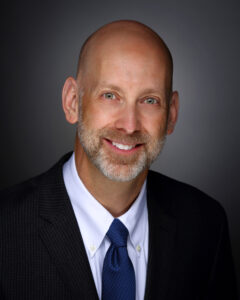 ACR past president and former chair of rheumatology at Gundersen Health System, LaCrosse, Wis., Douglas White, MD, PhD, recently joined Articularis Rheumatology Specialists in Atlanta. Dr. White shared his reflections on his transition to private practice and the ACR’s role in serving the needs of a range of rheumatology specialists.
ACR past president and former chair of rheumatology at Gundersen Health System, LaCrosse, Wis., Douglas White, MD, PhD, recently joined Articularis Rheumatology Specialists in Atlanta. Dr. White shared his reflections on his transition to private practice and the ACR’s role in serving the needs of a range of rheumatology specialists.
The Rheumatologist (TR): What were your main reasons for transitioning to private practice?
Dr. White: I’ve been extremely fortunate to work in academia, an integrated healthcare system and now private practice. Each has its benefits. Right now, I think there may be opportunities in an independent practice to be more nimble and innovate in ways that better serve the patient and preserve the autonomy of the physician.
TR: How does your background in research inform your practice of clinical care?
Dr. White: Scientific research teaches you how to recognize, be skeptical of and test your assumptions. In that sense, my research training affects nearly everything I do, from arriving at a diagnosis, to supervising a clinic, to reading the newspaper.
TR: Historically, some in the field have referred to tensions between providers in academic settings vs. private settings. Is this something you observed during your term as ACR president?
Dr. White: The ACR is a bit unusual in that it serves rheumatologists from a range of practice settings. This approach brings enormous benefit, but forces the organization to deal with this tension between rheumatologists who face very different challenges in their day-to-day lives. The ACR is well aware of this tension and is constantly striving to serve the interests of everyone under its umbrella.
When I was president, I encouraged ACR leaders to think about their members’ personal income. How do they earn a living? Are they worried about their next grant being funded—or these days, their current grant being rescinded? Trying to meet RVU [relative value unit] requirements? Going underwater on a drug in their infusion suite and being on the hook for the deficit? It’s not the only thing that separates rheumatologists, but it’s the big one, and it’s the one that nobody wants to talk about.
Importantly for the ACR, especially as academic centers put more emphasis on clinical revenue, there is more and more common ground. Trying to simultaneously serve people with diverse interests always feels a little dissatisfying. But I think the benefits of bringing everyone together, recognizing the common ground and using our collective strength to row in the same direction vastly outweigh the difficulties.



